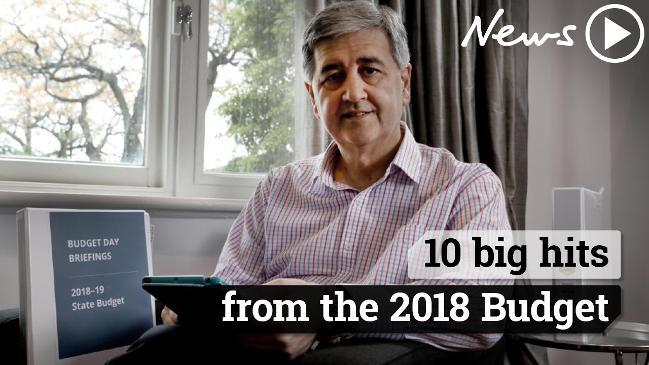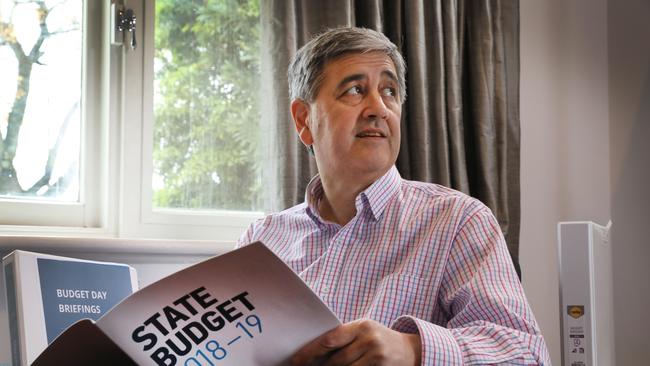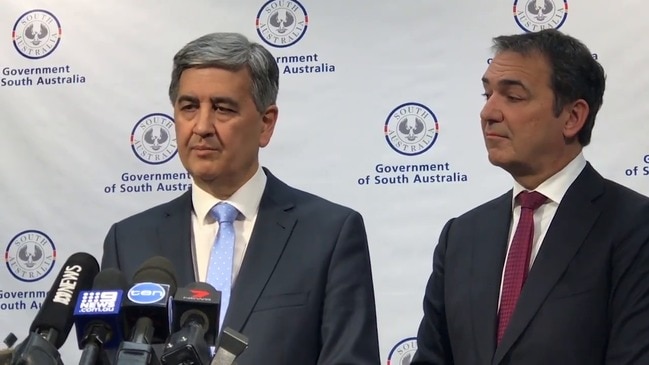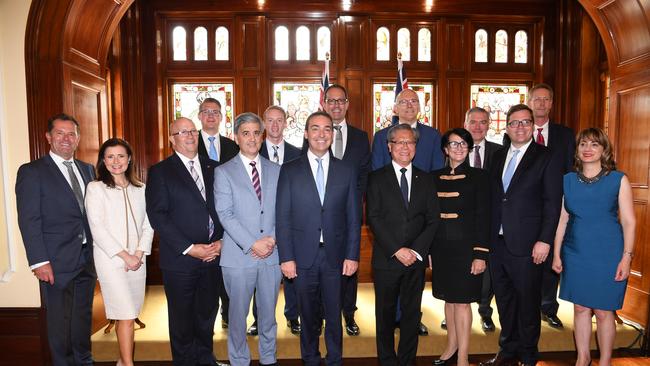Daniel Wills: This Budget has teeth — can the Liberals sell it in the suburbs?
SOUTH Australians voted for change, and it’s coming whether they like it or not. State Political Editor Daniel Wills analyses the likely fallout from the new Liberal Government’s first Budget.

Opinion
Don't miss out on the headlines from Opinion. Followed categories will be added to My News.
- Five-minute guide: Everything you need to know about the Budget
- Around our city: What the Budget means for your area
- Seven TAFEs to close — but funds flow in to education
- Libs pick fights with the wealthy and powerful
SOUTH Australians voted for change, and it’s coming whether they like it or not.
Premier Steven Marshall said he would lead a government of no surprises that keeps its promises. This State Budget, the first since his drought-breaking election win in March, gets halfway there.
All of the Liberals’ headline promises, including business and household tax cuts, have cash put behind them and both health and education are getting major boosts.
But there’s a few big shockers here which are set to buy Mr Marshall the first significant fights of his so-far charmed six-month run in the state’s top office — and test his mettle.
The closure of TAFE campuses will have the unions and Opposition up in arms. The prospect of outsourcing health services and charging higher fees on private doctors for using public hospitals will get some well-heeled and influential medical groups mobilised.
Axing little-used bus routes also has the potential to bite in the suburbs.
Former treasurer Tom Koutsantonis described his Budget last year as like a sexy woman in a red dress walking down the street. After prodding in Tuesday’s Budget lockup, new Treasurer Rob Lucas gave in to goading to say his was wearing “a businesses suit and sensible shoes”.

This Budget attempts to draw the starkest possible contrast between the new and old governments. As Mr Lucas tells it, the last mob were financially flamboyant and untrustworthy. He says they left the joint in a mess, and it falls to him to find a fix.
He’s declaring the days of big government are over and waste and excess must be pared back to allow him to cut back on taxes and give the private sector room to thrive.
But he admits delivering it is not going to be easy, saying many people in SA have become “used to” taxpayer subsidies and public sector cultures that indulge inefficiency.

“These are not easy decisions, and no one pretends that they are,” Mr Lucas said on Tuesday.
“(But) someone actually has to bite the bullet and take some of these difficult and challenging decisions. You can’t just throw your hands in the air and say ‘it’s all too hard’.”
This new Cabinet now faces a pressure test. Mr Lucas is a wily character who has been here before. But Education Minister John Gardner and Transport Minister Stephan Knoll, as well as Health and Wellbeing Minister Stephen Wade, will have to deliver many of the most difficult decisions in this Budget on the ground. We’re about to find out what they’re made of.

In many ways, this is a traditional kind of Budget handed down in the first year of an electoral cycle. It seeks to get the worst news out early, hoping it’s forgotten by the next election.
The government’s challenge is going to be selling the bitter medicine in this Budget.
Recent history is full of examples of politicians who failed to do so. Former prime minister Tony Abbott was brought undone by a brutal first Budget. Former SA Labor treasurer Kevin Foley bought a losing battle with his own union allies in the “horror Budget” of 2010.
SA voted for change and, after two decades of lagging behind the rest of the country on wages and jobs growth as well other key economic measures, is likely to give the new government a little goodwill as it goes about shaking the state up. But it would be impossible to say this kind of change is exactly what SA knew it was biting off six months ago.


